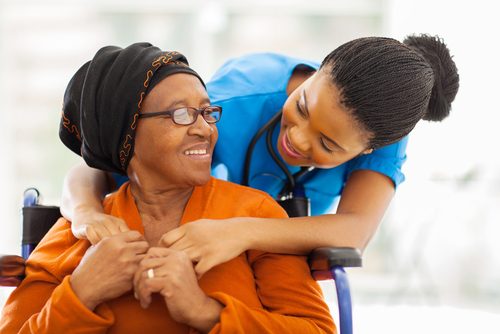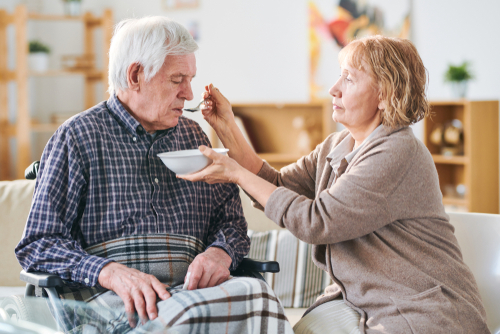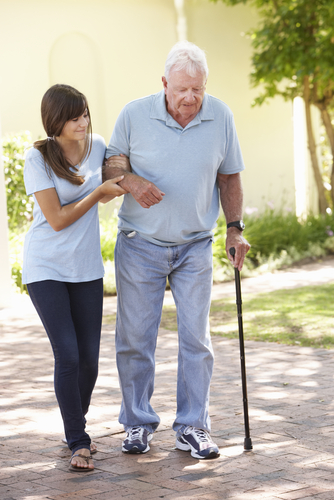The role of caregiver comes with many challenges. Sometimes it is a gradual progression of “helping out” a senior parent, and sometimes it means becoming the primary in-home caregiver. Other times, the role of senior caregiver is thrust upon you when Mom breaks her hip in a fall or after the death of one of your parents, leaving the other parent alone. If you are one half of a senior couple, you may find yourself in the role of caregiver for your partner. Whatever the circumstances, there is one indisputable fact: You will need help. It may just be moral support, or it may be more hands-on.
Fortunately, today there are many reputable organizations with websites that all caregivers can access. These can provide information on the latest research, problem-solving advice, helpful tips on caregiving, etc. There are chat lines that can give you access to other caregivers who will understand what you are going through and offer firsthand experiences that can help you with your senior. They also give you a safe place to vent, or cry, or laugh at the life you now have as a caregiver. This is especially true for those of you who are dementia caregivers.

You may also need professional in-home caregivers. You will have to have time off for personal care such as doctor and dentist appointments and hair cuts etc. You also need to take the time for recharging. Go see your friends, go to a movie, or go out to dinner. These are important tasks for the caregiver’s mental and emotional health. The time off won’t be without stress and worry unless you know that your senior is being well taken care of. You may be lucky enough to have a family member who can substitute for you, but most people work during the day, and you may have to use a professional caregiver service.
The following are 8 organizations that may be helpful to you:
1. AARP. Probably the most recognized organization dedicated to the welfare of seniors, AARP is an advocate for seniors in many ways. Membership in AARP allows members to keep up with new medical research, provides help with agencies that serve the senior, give advice on everything from a healthy diet to how to avoid scams. Because of the size of the organization, AARP is a powerful lobby for the rights of the senior citizen. In addition, your AARP membership entitles you to discounts in many restaurants, entertainment, and many retail stores.
2. Alzheimer’s Association. The Alzheimer’s Association provides assistance and information to dementia caregivers on everything from what to expect in the different stages of dementia to resources for legal advice and links to local support groups.
- Medicare.gov. This site can be very helpful if you are the senior caregiver for a senior on Medicare. This site will connect you with an expert if you have any questions relating to Medicare, and it also has links to sites that can tell you if the procedure you are considering is covered by Medicare.
4. VA Caregiver Support. This group is run by the U.S. Department of Veterans Affairs. If your senior is a veteran, this group will provide support and services for the family caregiver.

- Well Spouse Association. It is estimated that there are six million spousal caregivers in the U.S. alone. These caregivers have unique issues and challenges but often are isolated in their homes. This group provides peer support as well as education for the in-home spousal caregiver.

6. American Association for Caregiving Youth. This organization was developed to help the estimated 1.3 million children and teens who are caregiving for their parents or grandparents. They provide counseling and support. They also will be in direct contact with the school system to ensure that the young caregiver remains academically successful.
7. Caregiver Action Network. This group helps the caregiver get organized by offering a template of checklists that will simplify your life. The list includes the senior’s file checklist, a doctor’s file checklist, and a medication checklist. They also will help the caregiver to find a local support group.
8. National Institute on Aging’s National Alzheimer’s Education and Referral Center. This group provides the dementia caregiver information on legal issues, financial issues, behaviors, safety, and other issues the dementia caregiver is likely to encounter. They also provide the latest in Alzheimer’s research.
These are only a few of the resources available. Take advantage of the knowledge others have acquired in caring for a senior.

